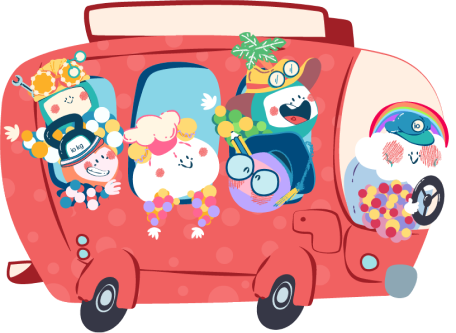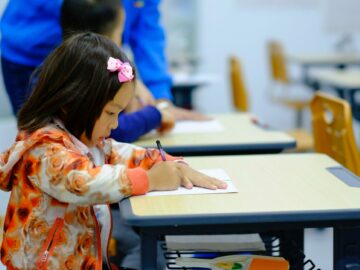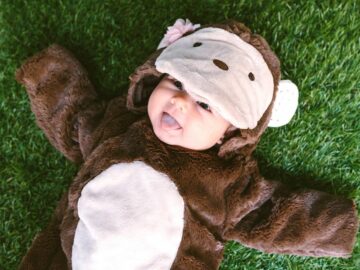As your child turns one, he becomes more aware of his surroundings and starts showing signs of independence by standing up or walking on his own. As a result, your child craves more stimulation and opportunities to explore and develop new skills.
Nurture your child’s development by providing him with fun and learning activities that are perfect for his age. Here are some ideas to try:
Developing Skills of Your One-Year-Old
Your one-year-old will be showing developments in several aspects–physically, mentally, emotionally, and even socially–even if you do very little to help. However, you can hasten the development of specific skills by doing the following:
- Giving your baby daily unstructured plays
- Providing plenty of sensory stimuli for them
- Giving him/her plenty of attention and encouragement
Important Milestones for One-Year-Olds
Courtesy of MomJunction
By 12 months, your child should be able to:
- Stand up by himself
- Walk (even if he/she needs to hold on to something)
- Drink from a cup (without a lid)
- Pick stuff up with thumb and pointer finger
- Play games with you
- Wave “bye” and say “mama” or “dada”
- Understand “No”
- Copy or imitate movements and gestures
- Look for hidden objects
- Identify selected objects by their name
Games for One-Year-Olds
Keep your little one entertained while picking up a new skill or two through the following games:
- Puzzle games (like a shape sorter)
- Sorting games or matching games (color matching)
- Stack ‘em up games (using cups or blocks)
Learning Activities for One-Year-Olds
Courtesy of theAsianparent
These excellent learning activities for one-year-olds provide plenty of stimuli for your baby as well as opportunities to exercise and explore:
- Ball pits
- Stack-em-up
- Sensory board
- Rolling things down a ramp
- Shape or color sorting
Sensory Learning Activities for 1-Year-Olds
Your one-year-old is always hungry for stimulation and learning. Satisfy their cravings for stimulation through these sensory learning activities:
- Sensory board (include buttons, zippers, switches, buckles, hinges)
- Dough-kneading
- Rainbow-colored noodles
- Listening to music (different genres)
- Walking on different surfaces, such as sandy beach, grass, pavement, or wooden floor
Physical Activities for 1-Year-Olds
Courtesy of Play Learn Thrive
The following physical activities provide plenty of help with your baby’s development by exercising specific muscles and familiarizing the body with important and useful movements:
- Running
- Skipping
- Hopping
- Catching
- Tumbling
- Throwing
- Swimming
Craft & Art activities for 1-Year-Olds
Art and craft activities provide excellent opportunities for experiencing various stimuli. At the same time, they promote creativity and imagination. If you’re looking for some art and craft activities for your 1-year-old, try these:
- Shape sculpting with playdough
- Finger painting
- Designing a wall mural with crayons
- Stringing beads (for necklaces or bracelets)
- Creating collages with stickers
Outdoor Learning Activities for 1-Year-Olds
Courtesy of BabyCenter
Bringing your one-year-old outdoors can be both a learning and fun experience. Make full use of your time outdoors with the following activities:
- Watering garden plants
- Playing in a sandbox (digging and burying stuff using just hands and then with tools)
- Playing chase or tag
- Drawing with chalk
- Crawling, climbing, and sliding in a kiddie pool
- Walking on the beach
Frequently asked questions on Fun & Learning Activities for 1-Year-Old
Where can I go with my 1-year-old?
At 12 months old, your child could use plenty of leg exercises, so taking him to these places for a walk, a run, or even a swim would be a great idea:
- Toddler parks
- Children’s museum
- Conservatories
- Indoor playgrounds
- Zoos and aquariums
- Beach
What activities can you do with a 1-year-old?
Since your 1-year-old is now capable of better, and more coordinated movements, he can now do the following activities:
- Playing with a busy board (with zippers, latches, buttons, knobs, buckles, and switches)
- Stacking or forming figures with blocks or cups
- Finger painting
- Sculpting using dough
- Playing chase or tag
How do I entertain my 1-year-old all day?
Keeping your 1-year-old entertained for a whole day is a daunting task. Fortunately, you don’t have to. One popular strategy that experienced parents often use is to rely on plenty of physically and mentally demanding activities.
Play activities that are physically and mentally exhausting are very effective at draining your toddler’s energy. Then, once your little one gets tired and falls asleep, you can enjoy a few hours of peace and quiet. Just be ready to face a fully-recharged toddler when your little one wakes up again.
How can I stimulate my 1-year-old’s brain?
You can stimulate your baby’s brain by:
- Talking to him/her regularly
- Listening to music (different types)
- Reading a book to him/her daily
- Letting your baby play with sensory games
- Allowing him/her to play puzzle games
How many words should a 1-year-old say?
On average, by the time they reach their 1st birthday, children would have already been able to say “mama” or “dada”.
How much playtime should a 1-year-old have?
According to childcare experts, parents of 1-year-olds are encouraged to give their babies playtime regularly. At least an hour of free, unstructured play and at least half an hour of adult-led or structured play will suffice.
What milestones should a 12-month-old be doing?
Most children, by the age of 12 months, are capable of:
- Standing up by themselves
- Walking (even if he/she occasionally still hangs on to something)
- Saying “mama” or “dada”
- Understanding “No”
- Finding an object (or toy) that he/she sees you hiding
- Drinking from a cup without a lid
- Picking up objects using the pincer-grip
What should I be teaching my 12-month-old?
Your 1-year-old is now capable of understanding and following more complicated rules and commands. Their muscles are also more developed and should now be capable of performing more intricate movements.
At this point, childcare experts recommend that parents already start teaching their 1-year-old the following:
- How to hold a pencil or crayon
- New words (colors, shapes, body parts, household items, vehicles)
- How to paint with fingers (even if this gets messy)
- How to count
- How to pack away their things
What should a 1-year-old know academically?
Although it would still be a few years before your 1-year-old goes to school, you can already start preparing him/her academically by:
- Teaching him/her how to hold a pen (or pencil)
- Teaching him the different shapes and colors
- Teaching him about the different body parts







